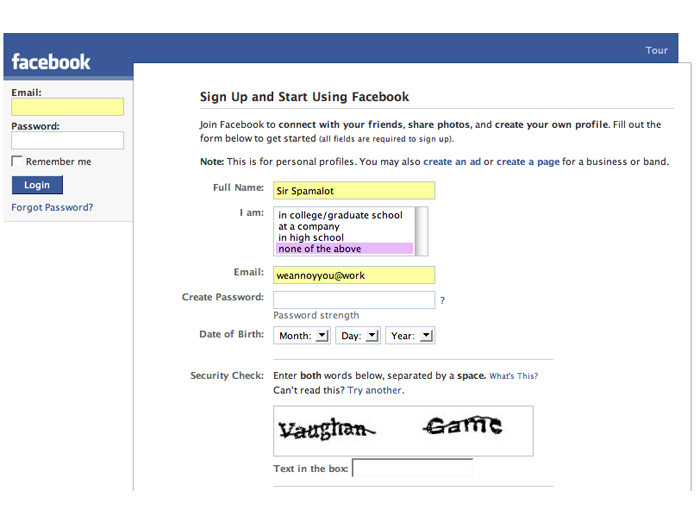Captcha goes video to outsmart spam
New security tech relies on human's unique ability to watch TV

The 'captcha' security systems for websites are turning to video to stem the tide of spam-creating bots.
Current captchas display wavy words hidden in noisy images, relying on people's ability to spot familiar patterns. However, advances in AI mean that automated systems are catching up fast.
Now scientists at Tel Aviv University have developed multimedia captchas that should give us a few more years before our entire online world turns to spam.
People are special
"Humans have a very special skill that computer bots have not yet been able to master," says Professor Danny Cohen-Or of Tel Aviv University's Blavatnik School of Computer Sciences. "We can see what's called an 'emergence image' - an object on a computer screen that becomes recognizable only when it's moving - and identify this image in a matter of seconds. While a person can't 'see' the image as a stationary object on a mottled background, as it moves we can recognise and process it."
Professor Cohen-Or describes a synthesis technique that generates pictures of 3D objects, like a running man or a flying airplane. This technique, he says, will allow security developers to generate an infinite number of moving "emergence" images that will be virtually impossible for any computer algorithm to decode.
The researchers are also developing methods of automatically generating hidden images in a natural background, like a mountain setting — a digital "Where's Wally?" game. "We're trying to hide images like eagles or a lion in mountainscape," says Cohen-Or. Because the moving image blends into a static background, it's hard for bots to understand what the human eye perceives with only minimal training.
Get daily insight, inspiration and deals in your inbox
Sign up for breaking news, reviews, opinion, top tech deals, and more.
"This could be a tough thing for a robot to crack, so we're working hard to make it practical," he emphasizes. "A good captcha has to be something that's easy for people but hard for a machine."